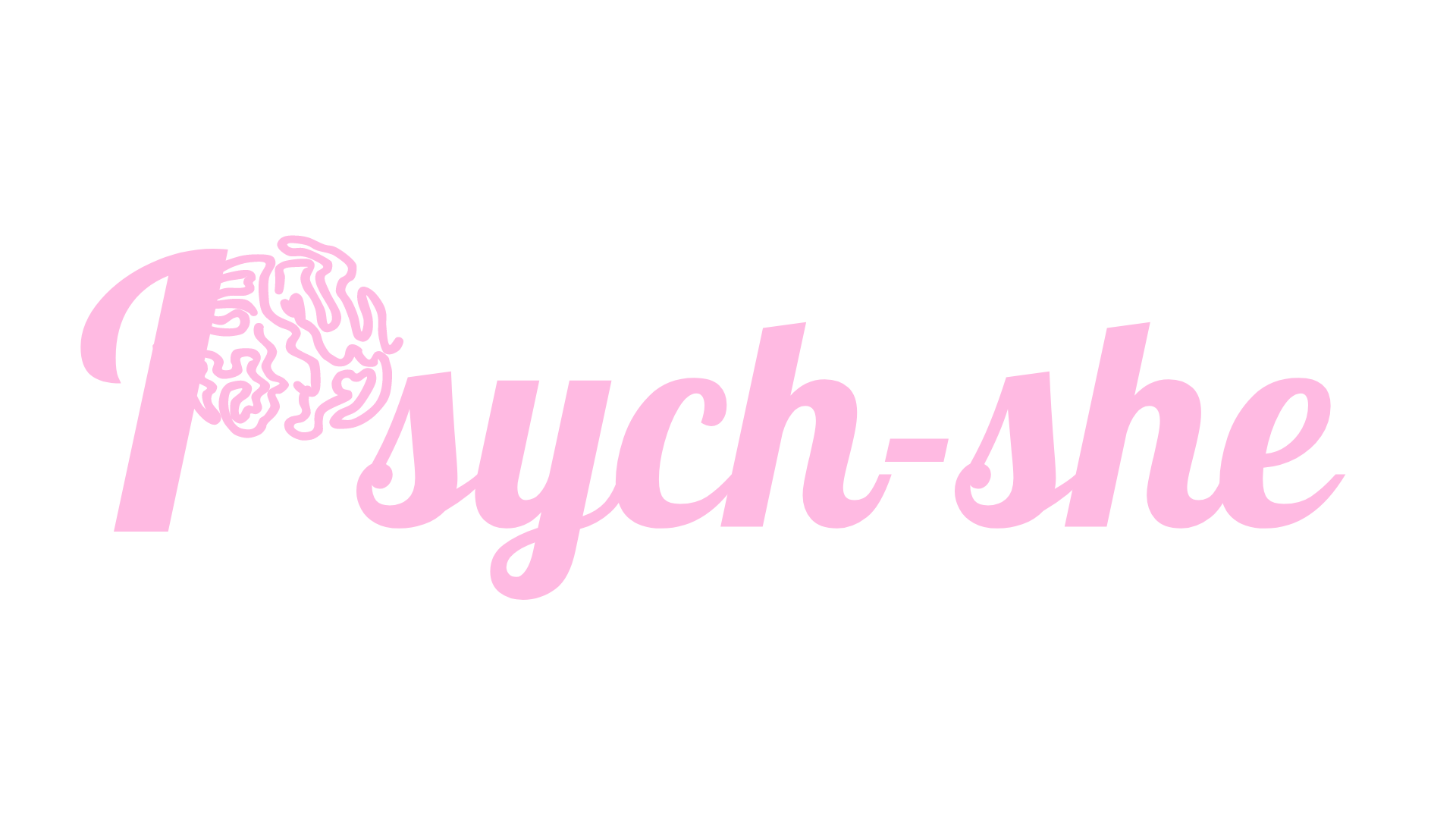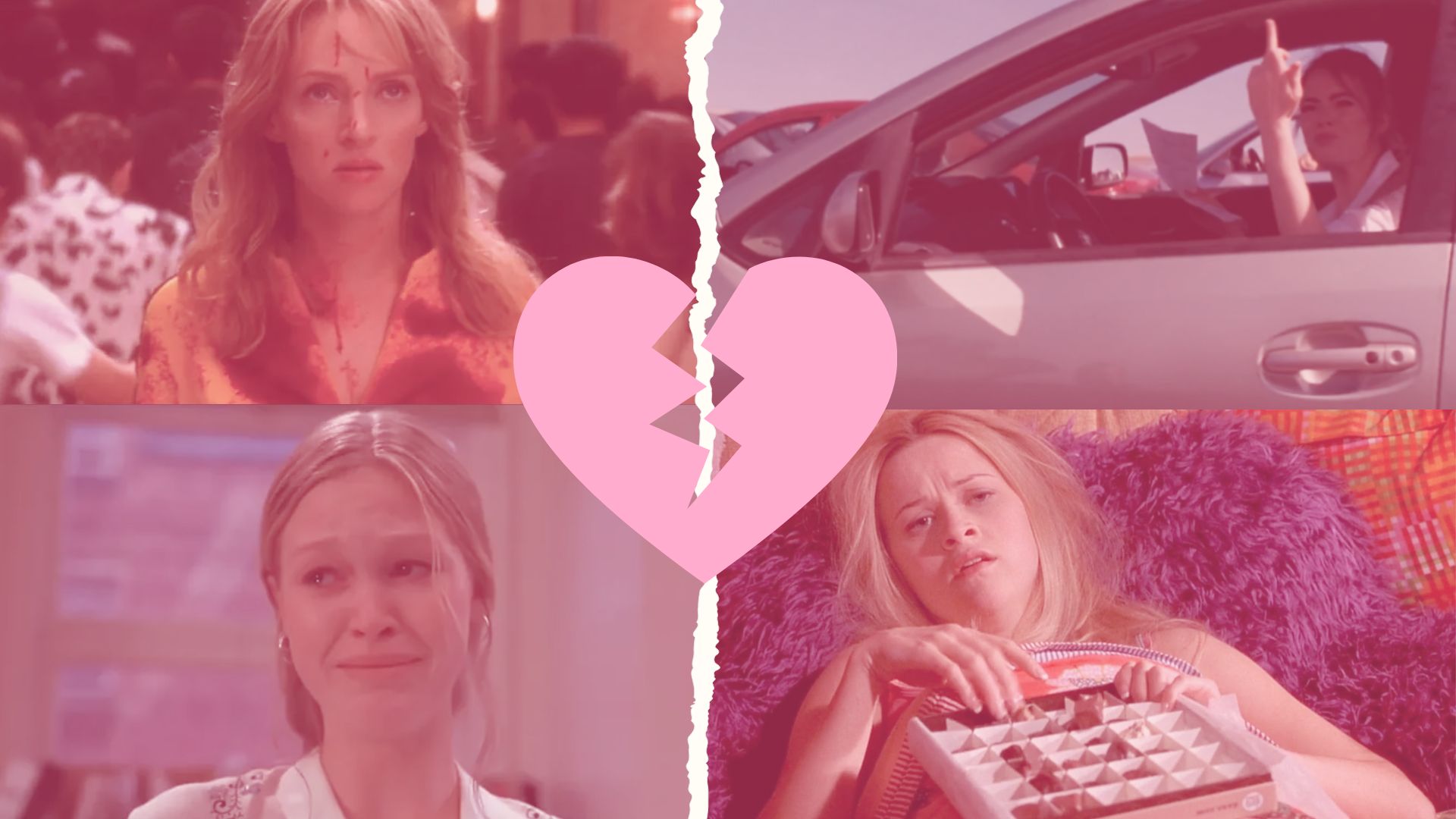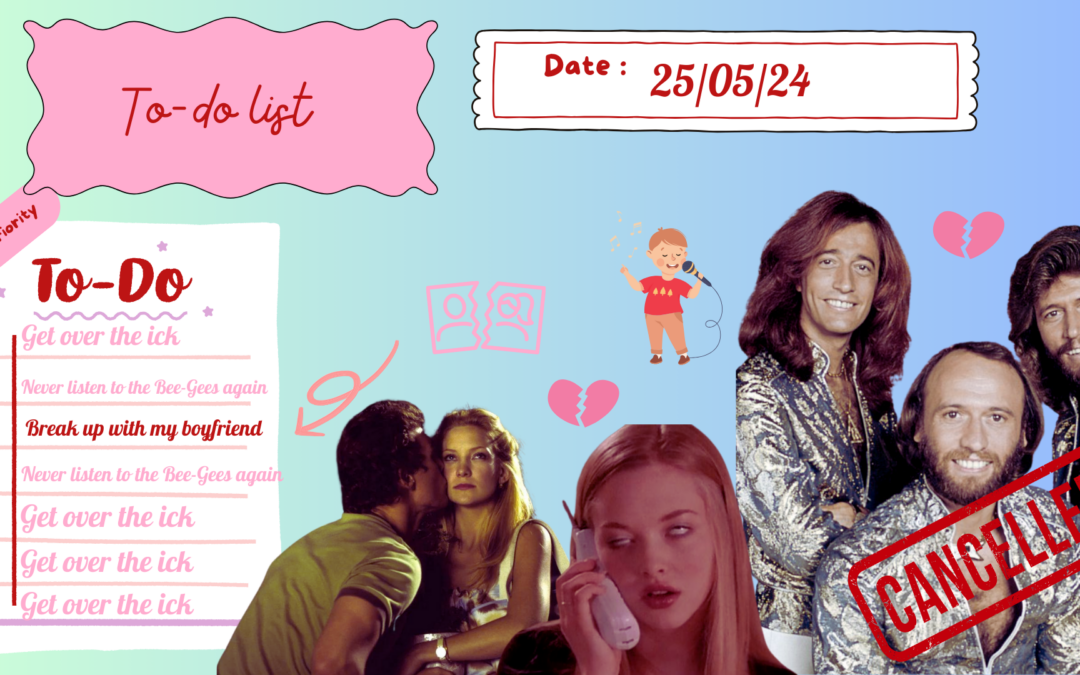Going from proudly displaying your no man needed independence on social media to recreating the ‘‘All by Myself’’ scene from Bridget Jones’s Diary, breakup grief can present itself in many forms. Whether you wanted him to go, or his swift exit has left you feeling bereft, you may experience an intensity of emotions. These uncontrollable feelings can mirror those of grief. So, the next time someone says to you ‘just get over it’ find comfort in the fact it isn’t that easy.

Zurlia Servellon experienced breakup grief at 27 years old when her seven-year marriage started crumbling around her. The now 30-year-old was overcome with heartache when her husband initiated a divorce during the 2020 lockdown.
‘‘I thought we were both committed enough to want to make it work so I was caught off guard and the sadness and pain felt more like grief.
‘‘I even moved countries in the middle of the pandemic. I moved to Mexico because I felt completely lost. I had no sense of self outside of marriage as he had been my person my entire adulthood. We had so many goals and plans for the future and all of a sudden I had to start from scratch and create a new life for myself.’’
Many of us will experience a traumatic breakup in our lifetime, but what exactly is this overwhelming, consuming, and gut-wrenching feeling that has us wallowing in self-pity while pressing shuffle on a premade breakup album?
‘‘Breakup grief is the normal and natural response to the dissolution of a relationship,’’ says Dr. Mekel Harris, a licensed psychologist who specialises in grief and loss. ‘‘We tend to associate grief with the physical death of a loved one. However, grief is a lot broader than that, it encapsulates any significant loss, which could include a romantic relationship.’’
People often relate breakups to losing a part of themselves. After the years you have spent devoted to who you thought was the one it is only natural to be left questioning who you are without them.
You go to a café and place your favourite order, then remember they introduced you to it, and instantly you reminisce. It is tricky to redefine your identity when for so long it was influenced by someone else.
The grief experienced during a breakup can impact you mentally, physically, and socially, which all relate to your identity. ‘‘It can challenge your sense of self. It means that you have to re-evaluate your personal goals, your values, and the way that you perceive yourself,’’ counselling psychologist, Bȇne Otto explains.
‘This isn’t working’, are three small words that can cause unimaginable pain, but the repercussions are often forgotten. Letting go is underestimated. It’s like attempting to detangle necklaces: time-consuming, agonising, and frustration tears are highly likely.
‘‘The letting go element of ending a relationship is extremely difficult and painful, we develop deep emotional bonds over time which creates a sense of security, safety, and belonging. When that ends, it disrupts the emotional connections that can trigger feelings of loss.
‘‘The fear of the unknown and starting anew can make the idea of letting go feel intimidating as you might still get a sense of comfort and familiarity of the past, even if it wasn’t all good,’’ Otto says.
Lisa McFarland, UK and Ireland’s leading relationship coach often has to remind her clients that relationships deserve a grieving period, and they are something that cannot be rushed.
‘‘When I have coached people who have gone through breakups, they will get annoyed at themselves that they’re not over it yet. But you don’t want to be someone who is over it in a week. Your relationship deserves more than that.
‘‘You go through anger and disbelief as you reflect on the birthdays you were going to have and the holidays you were going to experience, especially if you’re the one who wanted this to continue. You did not want this outcome but that is the nature of grief, sometimes it comes, sometimes you feel great, and a lot of the time there is no rationale for it.’’
After the news of the divorce, Zurlia had to face the battle of letting go. ‘‘Although I knew we had grown apart, I was attached to the idea of growing old together. It felt nice knowing I was married as it gave me a sense of security and stability.’’
The getting over process is not glamorous, whether that’s getting fed unwanted information from a mutual friend or locking eyes with your ex in the club, as a big city suddenly seems small when you are trying to avoid someone. Unfortunately for us it is not a quick fix.
Left with no choice, Zurlia had to cut people out of her life following the breakdown of her marriage. ‘‘We had the same friends who I also had to let go of for my own sanity. I absolutely adored his family as his father was like a father to me. But in order to move on completely I had to make the decision to put distance between me and his family, it was the healthiest thing to do.’’

Letting go of someone who doesn’t seem to be going anywhere is seemingly problematic and full of complications.
Dr. Harris believes preparation is key. ‘‘I think one of the challenges with a romantic breakup is that, yes, the person’s no longer in your life, but at the same time there are opportunities to see them again. This can complicate it and in some ways reactivate the emotional reactions associated with loss in the first place.
‘‘Often with couples, there are overlapping friendships and relationships, and so if you’re not seeing the person, you’re hearing about them. It is important to prepare, and almost anticipate that the chances of you seeing this person is probably likely, depending on your social circles.
‘‘Be mindful to take as many steps as you can to shield yourself from the overexposure of the breakup.’’
Psychologist and author, Niamh Fitzpatrick was faced with both types of grief after her sister died, and at the same time her marriage was ending. It was then that she realised the loneliness surrounding breakups.
‘‘I discovered as I grieved for my sister, that a lot of the feelings were parallel to the grief around the end of the marriage. But it struck me that we don’t approach relationship grief in the same way. There isn’t a funeral, there are no sympathy cards. But actually, what we know about grief is that the rituals around it help us.
‘‘In relationship grief, we don’t tend to have those and you can often do it on your own, or you do it quietly, or silently. Sometimes people don’t know what to say, so they say nothing.’’
The complexities around breakups often leave us wishing there was a survival guide to them. Instead, we are left to our own devices. Impulsively downloading dating apps, breaking no contact for the second time in a week, or festering in bed forgetting that there is a world outside your four walls.
So, is there really an answer to moving on?
‘‘Where we get in trouble with loss or grief is when we try to deny it and we push it to one side. Whereas instead, if you can actually say, I’m going to allow myself to feel those feelings then you are being authentic.
‘‘Lean into that and allow those emotions. Some people need some guidance, it might be friends or family, or for other people professional help. And that just means somebody is there to be with you while you’re learning to accept and adjust to this loss in your life. It’s entirely normal. It’s entirely okay. Although not pleasant,’’ Fitzpatrick says.
However, breakups are not always defined by Ben and Jerry’s ice cream and a sea of snotty tissues, Zurlia discovered a new sense of independence following her breakup.
‘‘After shock, I experienced grief and then acceptance which turned into positivity, this gave me different possibilities to continue my life without him.
‘‘I believe part of me will always feel gratitude and have love for him, but I am fully over it. I went to therapy, and I will always be grateful for that because I wouldn’t have done all the work I have without heartbreak.
‘‘I keep growing emotionally, mentally and spiritually, with the ability to mould my life to anything I desire, and I think that’s a precious gift.’’
It is fair to say that breakup grief truly does embody the good, the bad, and the ugly. You have to keep afloat whilst dealing with the overwhelming feeling that you cannot continue life on your own. But with each day you are creating an improved, stronger, and more resilient version of yourself whose self-worth is not dependent on a man. However, if the opportunity presents itself, you might be open to welcoming one back into your life.
Expert insight: Niamh Fitzpatrick
Niamh Fitzpatrick has a BA in Psychology and a MA in Clinical Psychology. She provides talks for a variety of organisations focusing on grief and helping people learn to live with loss.
Expert insight: Dr Mekel Harris
Dr. Mekel Harris is a licensed psychologist who loves helping other perfectly imperfect folks navigate life’s challenges in order to grow in lifestyle, love and leadership.
Expert insight: Bene Otto
Bene Otto is a passionate counselling psychologist dedicated to helping individuals and couples navigate life’s challenges. Bene is registered with the HPCSA and HCPC. She has a special interest in grief and disenfranchised grief, and is currently completing a doctorate in Psychology on this topic.
Expert insight: Lisa Mcfarland
Lisa Mcfarland is a UK & Ireland’s Leading Relationship Coach & the founder of Relationship Coaching NI. It is Lisa’s mission to educate people on how to have and maintain healthy relationships by focusing on self-worth, intimacy, and communication.




